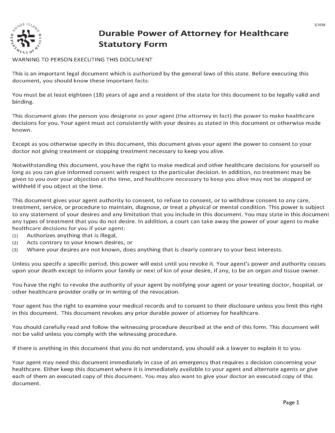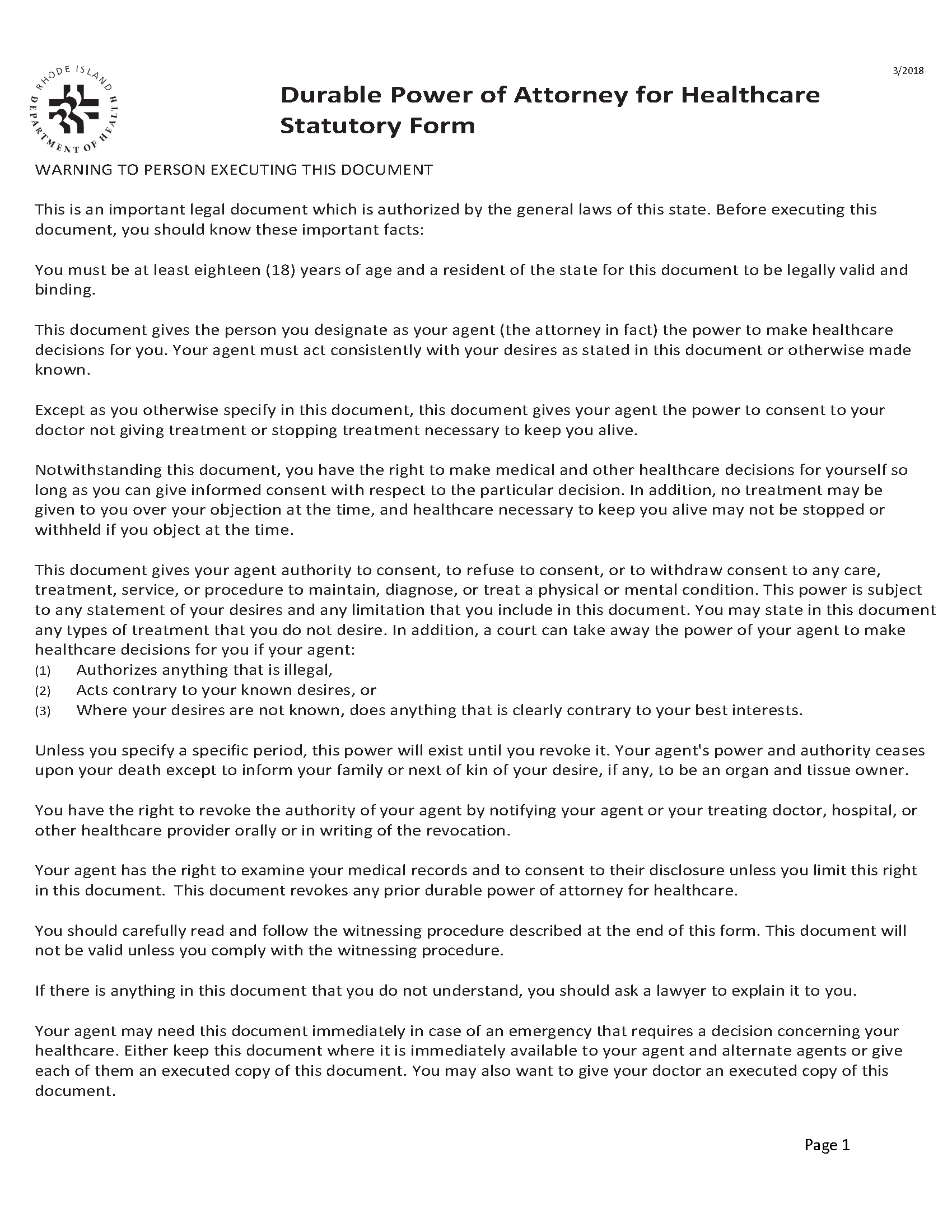Signing Requirements
Rhode Island law requires that a medical power of attorney be either notarized or signed by two adult witnesses.[1] Neither of the witnesses can be:
- Named in the power of attorney as an agent or alternate agent.
- A health care provider or employee of a health care provider.
- An operator of a community care facility or the operator’s employee.
Anyone who stands to inherit from the principal’s estate or is related to the principal cannot act as the notary or one of the witnesses.
Power of Attorney (Preview)
Legal Definition
“Durable power of attorney” means a witnessed document executed in accordance with the requirements of § 23-4.10-2.[2]
Revocation
An individual can revoke their agent’s authority by communicating their intent either verbally or in writing to the attending physician, any health care provider, or emergency medical service personnel.[3]

